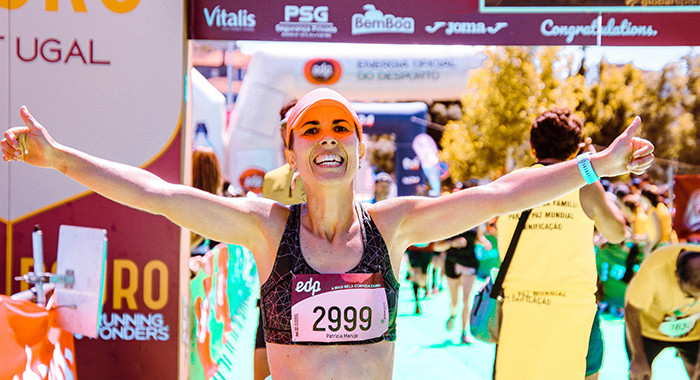Emotional expressions in sport
The German Research Foundation (DFG) is funding a research project by the Institute of Exercise Training and Sport Informatics at the German Sport University Cologne on the relationship between non-verbal behaviour in sport and cultural background.
Anyone who has ever watched a sporting event will recognise the classic cheering gestures after a successful action or victory. On the other hand, drooping shoulders or shaking your head are unmistakable signs of an unsuccessful action or a defeat. These are just a few examples of so-called non-verbal behaviour (NVV) in sport - a field of research that PD Dr Philip Furley from the Institute of Exercise Training and Sport Informatics at the German Sport University Cologne is working on. For a new research project on this topic, he has now been able to obtain funding from the German Research Foundation (DFG) totalling 240,000 euros for a project duration of 24 months.
"Non-verbal behaviours in sport are means of communication that do not require words and can convey a wide range of information," explains Spoho scientist PD Dr Philip Furley. These include gestures, facial expressions, posture and body language, touch and even rituals. The so-called universality of certain non-verbal behaviours (NVV) is still controversial among experts. This assumes that some forms of non-verbal communication have similar meanings across different cultures and are generally understood. A well-known example is the research by Paul Ekman, who identified universal facial expressions for basic emotions such as joy, sadness, anger, surprise, fear and disgust. The project now being funded by Dr Furley aims to use the sports context to investigate whether non-verbal behaviours associated with victory and defeat are produced and understood similarly by different people around the world. According to Furley, there have been contradictory research findings to date.
Several experimental studies are being carried out as part of the project. For example, the non-verbal behaviour of Olympic and Paralympic athletes will be analysed in situations of victory and defeat. In the first study, manual and automated face and body coding techniques will be used. It also examines whether behavioural patterns differ depending on the type of sport, nationality, gender and time (during the competition, immediately afterwards and later). The third study looks at non-verbal behaviours before the competition and during a disqualification and thus serves as a control condition for the highly intense emotional states in the first two studies. The remaining studies examine how people from different cultural backgrounds interpret the non-verbal expressions from studies 1 and 2.
The project is based on various theories that are tested against each other, for example the Behavioural Ecology Theory. This theory emphasises that behaviour should be seen as an adaptation to the environment. All studies in the research programme are considered within an overarching Brunswik lens model. Furley: "This model is used in psychology, cognitive science and also in applied fields such as sport to analyse and improve decision-making and perception. Overall, the insights we gain in the project should contribute to a better understanding of how people from different cultures express emotions."
Project contact:
PD Dr Philip Furley
Institute for Exercise Training and Sport Informatics
Phone: +49 221 4982-4310
